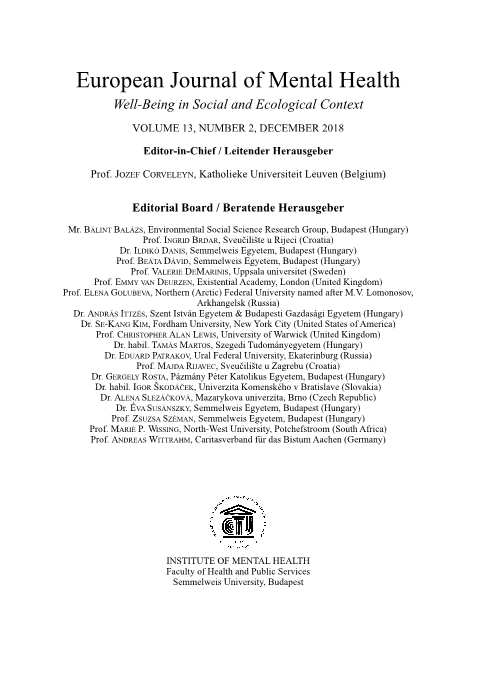The Hungarian Mysticism Scale and its Associations with Measures of Religiosity, Personality, and Cognitive Closure
The Hungarian Mysticism Scale and its Associations with Measures of Religiosity, Personality, and Cognitive Closure
Author(s): Viktória Nagy , Anikó Herczeg-Kézdy, Tamás Martos, Szabolcs UrbánSubject(s): Social Sciences
Published by: Semmelweis Egyetem Mentálhigiéné Intézet
Keywords: Mysticism Scale; mystical experiences; Openness to Experience; Need for cognitive closure; religious attitudes; Post Critical Belief scale
Summary/Abstract: The purpose of this study was to introduce the Mysticism Scale on a Hungarian population and to investigate the meaning and nature of reported mystical experiences (ME) from three different aspects: their associations with religious attitudes, the big five personality traits, and the need for cognitive closure. The sample consisted of 240 respondents who completed the Mysticism scale, the Post Critical Belief Scale, the Big Five Inventory, and the Need for Cognitive Closure Scale using an online questionnaire. Results indicated that ME positively correlated with the two dimensions of the Post Critical Belief scale, as well as with Openness to Experience. Moderate but significant positive correlations were found between ME and Agreeableness. Finally, ME negatively correlated with the need for cognitive closure (NFC) and with three of the NFC subscales (Close-mindedness, Preference for Order, and Preference for Predictability). Regression analysis using the above as variables highlighted that the acceptance of Transcendence and Openness to Experience were the main predictors of mystical experiences, whilst Symbolic interpretation might also have contributed, although to a lesser extent.
Journal: European Journal of Mental Health
- Issue Year: 13/2018
- Issue No: 02
- Page Range: 133-149
- Page Count: 17
- Language: English

